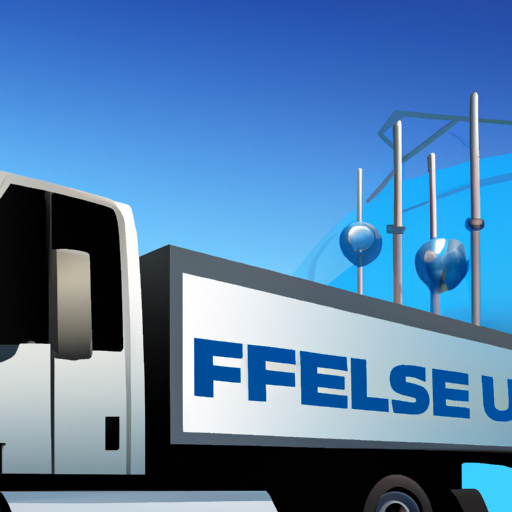The U.S. Department of Energy (DOE) has unveiled a $7 billion endeavor, known as the Clean Energy Hydrogen Hubs initiative, which aims to revolutionize our nation’s hydrogen production. This ambitious program strives to pivot away from the current natural gas-dominated methods, which account for approximately 95% of U.S. hydrogen production. Instead, it will promote renewable and alternative hydrogen sources to make zero-emission transportation, including fuel cell trucks, a more affordable and mainstream option.
Hydrogen Hubs Program: An Overview
Launched in September 2022, the Hydrogen Hubs competition was designed to drive down the costs associated with producing hydrogen, utilizing regional resources and renewable energy. The initiative spotlights hard-to-decarbonize industries, with a special focus on long-haul trucking. This sector has gradually begun a shift from diesel to battery electric trucks, however, hydrogen fuel cell vehicles have garnered interest due to their faster refueling time and independence from grid infrastructure.
Hydrogen Fuel Cells Gaining Traction in the Trucking Industry
Despite batteries being the initial front-runners in electric transportation, hydrogen fuel cells are gaining momentum in the heavy-duty trucking sector. Offering potentially longer ranges and more space-efficient designs, fuel cells have become particularly attractive for Class 8 trucks, replacing large and heavy battery packs.
California and Texas Lead Hydrogen Innovation
Two industry hotbeds, California and Texas, have been recognized as pivotal players within the DOE’s Hydrogen Hubs. The California-based ARCHES project stands out for its commitment to utilizing biomass and green hydrogen produced by electrolysis, drawing power solely from renewable sources. Similarly, the Pacific Northwest project, which includes Washington, Oregon, and Montana, aims to build upon the region’s significant wind energy potential by focusing on water electrolysis.
Midwest and Texas Projects: Decarbonizing Industry and Transportation
Spanning seven winning projects, the Midwest’s MachH2 consortium, which includes Illinois, Indiana, and Michigan, underscores the critical role of hydrogen in various sectors such as transportation and manufacturing. Also notable is HyVelocity in Texas, with its inclusive approach to hydrogen production that encompasses both natural gas and greener alternatives.
Natural Gas’s Role and Public Response
Despite certain criticisms regarding natural gas, only one of the seven awarded projects, ARCH2 in the Ohio-Pennsylvania-West Virginia hub, focuses solely on natural gas. Expected backlash from environmentalists in these regions might be significant due to new related infrastructure development.
The Pioneers of Fuel Cell Trucking
Companies like Nikola have been enthusiastic about advancing the market for green hydrogen and fuel cell technology. Nikola, in particular, has been exploring opportunities for green hydrogen fuel stations, with notable collaborations with Bosch, the U.S. Postal Service, and Plug Power. Hyzon also made news by testing a liquid hydrogen truck in Texas, which suggests a burgeoning interest in this technology.
European Origins Making Waves in the U.S.
On the international front, Quantron, a German truck manufacturer, is making its foray into the U.S. fuel cell market, partnering with Ballard Power Systems and announcing initiatives at the 2023 Move America conference. Their presence signifies the global cooperation present in the industry.
ExxonMobil’s Strategy Amid Hydrogen Advances
Just as the DOE announced the winners of the Hydrogen Hubs competition, ExxonMobil revealed a major investment to expand its shale gas operations in the Permian Basin. This strategic move may position the oil and gas giant to leverage the momentum of the burgeoning hydrogen economy.
Political Silence on Decarbonization Efforts
The move toward clean hydrogen transportation is not without political controversy. Recent actions by Republican leaders in Congress indicate a reluctance to address domestic affairs like these, which ultimately affects the pace of progress toward decarbonization.
The shift towards renewable hydrogen represents not only a turning point for the U.S. trucking industry but also poses unique opportunities and challenges for stakeholders ranging from small startups to major energy corporations. Stakeholders are eagerly watching to see if these developments truly herald a new era of green logistics and industry.

























